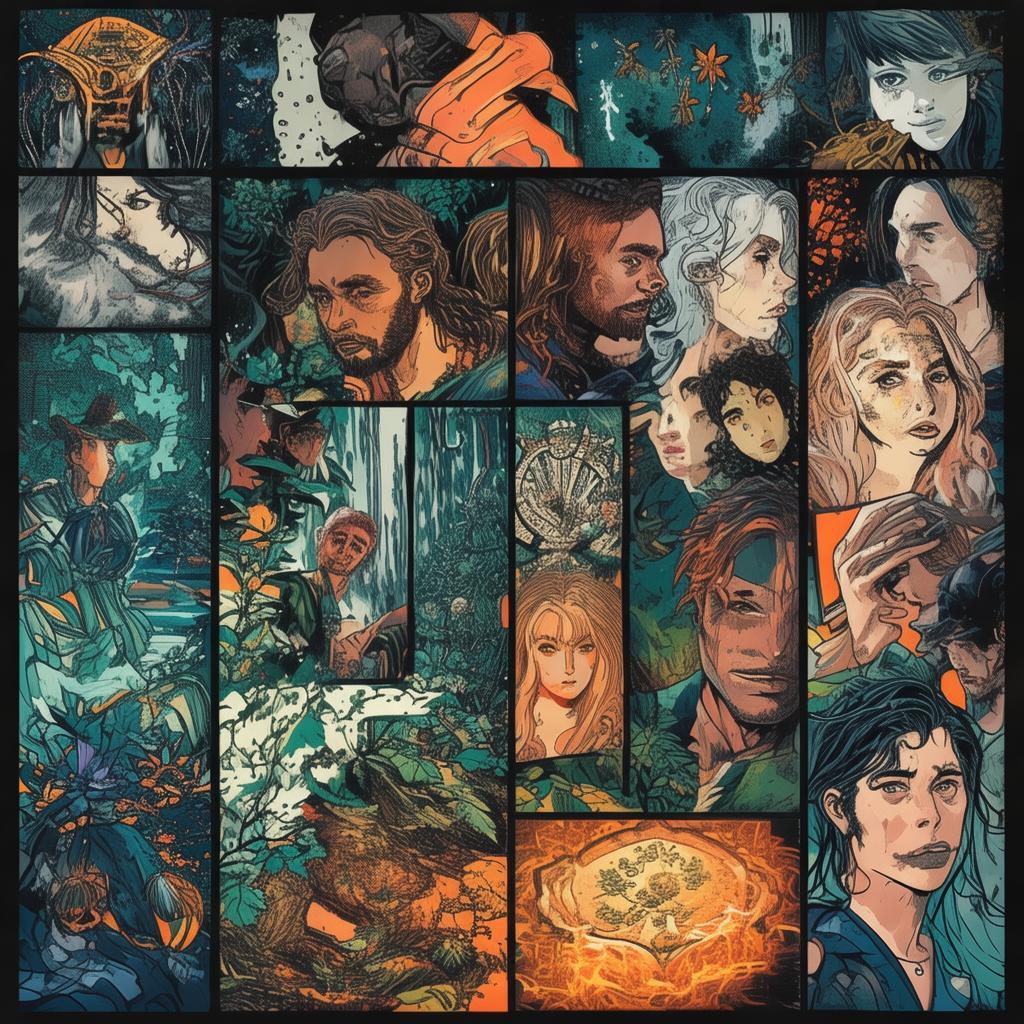The Director's Labyrinth: The Path to Filmmaking
In the heart of the bustling city, where the skyline was a collage of glass and steel, Alex stood at the crossroads of his life. He was a man with a vision, a vision that had driven him to the brink of obsession. Alex had always been fascinated by the art of filmmaking, the power of storytelling, and the magic of capturing moments on screen. But as he stood in the shadow of his latest failure, he felt the weight of doubt settle on his shoulders like a heavy cloak.
It was a typical day at the film studio, or so Alex thought. The crew was in place, the cameras were rolling, and the actors were in character. But as the director, Alex knew that there was something missing. The story, the soul of the film, seemed to be slipping through his fingers. He watched as the scene unfolded before him, but the passion he once felt was gone. Disappointment washed over him like a wave, and he found himself lost in a sea of his own insecurities.
Suddenly, the ground beneath his feet began to tremble. The studio, once a sanctuary of creativity, now felt like a prison. The walls seemed to close in, and Alex felt a strange pull towards the door. Without thinking, he pushed it open and stepped into the corridor beyond. The walls were lined with mirrors, each reflecting the same face, the same man who was so deeply in pain.
The corridor seemed to stretch on forever, and Alex walked deeper into the maze that had formed around him. Each turn brought him to new rooms, each room filled with symbols of his past failures and unfulfilled dreams. There were scenes from films that had gone wrong, scripts that had been abandoned, and awards that had never come. It was a haunting gallery of the things that had eluded him.
As Alex wandered deeper, he realized that the labyrinth was not just a physical place; it was a reflection of his own mind. Each corner, each twist, was a part of his psyche, a manifestation of his deepest fears and desires. He found himself in a room filled with screens, each showing a different version of his life. Some were happy, some were sad, but all were different from the reality he knew.
In one corner of the room, he saw himself standing on the podium, accepting an Academy Award. In another, he saw himself as a failed director, watching his dream slip away. The contrast was stark, and Alex realized that he had to choose which path to take. He had to decide what kind of filmmaker he wanted to be.

As he moved through the labyrinth, Alex encountered characters from his past, both real and fictional. He met the actors who had turned down his offers, the financiers who had backed out, and even the critics who had torn his work apart. Each encounter was a challenge, a test of his resolve. He had to confront the fears that had held him back, the doubts that had clouded his vision.
One of the most difficult confrontations was with himself. He had to face the truth about his own insecurities, the fear of failure that had kept him from pursuing his dreams with full force. It was a painful process, but Alex knew that he could not escape his past if he wanted to move forward.
As he continued his journey, Alex found himself in a room filled with blank screens. It was a room of possibilities, a place where he could create anything he wanted. Here, he could craft the perfect story, the film that would define his career. But he also realized that the film he wanted to make was not just a product of his imagination; it was a reflection of his own journey.
In the end, Alex found himself standing in a room that seemed to be the heart of the labyrinth. It was a room filled with light, a place where he could see the path ahead. He realized that the labyrinth had been a test, a way to force him to confront his fears and doubts. And now, he was ready to face the world and his dreams with a newfound clarity.
With a deep breath, Alex stepped forward. He reached out and touched the screen, and the image of the film he had been trying to make appeared before him. It was a story of struggle, of hope, and of the triumph of the human spirit. And as he watched the film come to life, Alex knew that he had found his voice as a director.
The labyrinth had been a journey of self-discovery, a path to understanding the true nature of his passion for filmmaking. And as he stepped out of the labyrinth, into the world outside, Alex felt a sense of purpose and direction that he had never known before.
The Director's Labyrinth had been more than a test; it had been a crucible, where Alex had forged his own destiny. And as he looked out at the world, he knew that the path to filmmaking was not just about creating films; it was about creating oneself.
✨ Original Statement ✨
All articles published on this website (including but not limited to text, images, videos, and other content) are original or authorized for reposting and are protected by relevant laws. Without the explicit written permission of this website, no individual or organization may copy, modify, repost, or use the content for commercial purposes.
If you need to quote or cooperate, please contact this site for authorization. We reserve the right to pursue legal responsibility for any unauthorized use.
Hereby declared.









